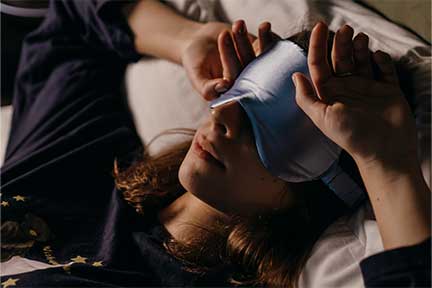How to get a good night's sleep when you work the graveyard shift

Do your work hours leave you feeling groggy? How to get a good night's sleep when you work the graveyard shift
If your job requires you to work inconsistent or late hours, you may have trouble getting a good night's sleep. Nurses, doctors, police officers, clerks, and the like may have more difficulty than the average person in falling asleep because of their irregular work schedules. If your job interferes with your sleep schedule, don't stress. Getting sleep is not a seemingly impossible task. Follow these tips to find a better balance between your work and sleep hours!
-
Set a dark environment.
This is especially important for people who work an overnight shift, and then sleep is in the morning and afternoon. Healthyshiftworkers.com suggests eliminating light from your room completely. Simulating that it is nighttime can make it easier to trick your mind into thinking it needs to go to sleep.
-
Use an eye mask.

Again, light can be distracting and keep you up when your body needs sleep the most. If you can't make your room dark, try getting an eye mask or eye shades to block out the light for you and not other people who may be up and awake in the same room.
-
Choose a quiet place.
Try to choose a place to sleep where there are few distractions and sounds. It can be difficult to get quiet sleep while the rest of the world is awake and making noise! SleepPhones can serve as a good buffer for blocking out distracting sounds.
-
Warn your body.
If you know your sleep schedule is going to change, Best Health Magazine suggests starting to alter your usual sleep routine three days in advance. This may require postponing your usual hours of sleep to a later bedtime so that you can sleep later if you have a late night shift or hit the sack earlier if you work a morning shift.
-
Take advantage of naps.
If you have a break in your shift or a few hours of down time before you start work, catch some extra Z's. The Mayo Clinic notes that napping up to 30 minutes before your shift can enhance your alertness, memory and performance, helping you to feel refreshed and ready to go.
-
Stick to a routine.
This is important because as your shifts are changing, so is your body and mindset. Going to bed and waking up generally around the same time each day (even on weekends) helps with getting your full potential of sleep and falling asleep more easily when you need it the most.
-
Don't let your shift get the best of you. Enjoy work and sleep by utilizing these tips and check out other blogs like 7 tips to prepare your bedroom for sleep for more ideas how to get a good night's sleep.
